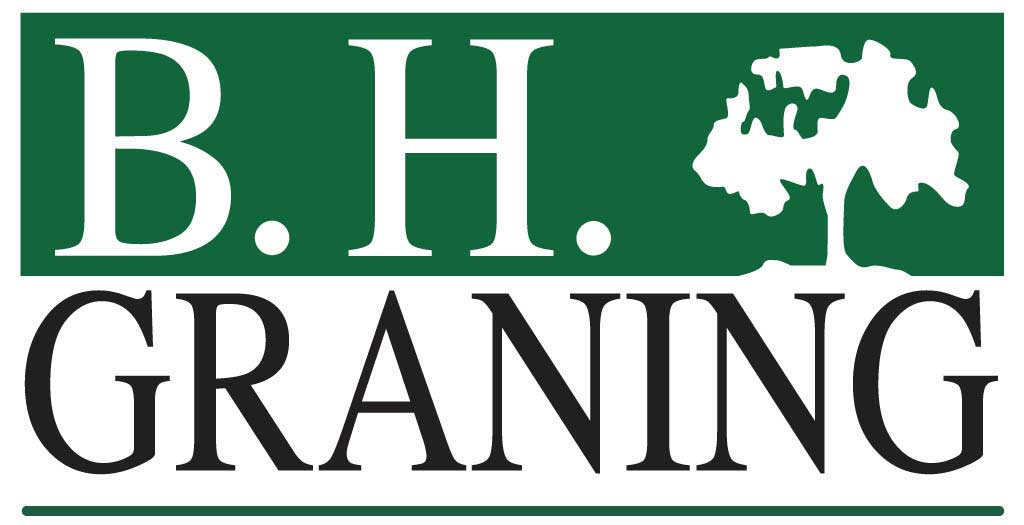We are hearing more and more about the importance of pollinators to the health of our ecosystem and our food crops. Pollinator populations are declining worldwide due to habitat loss and pesticide poisoning. Pollinators, especially bees, are important for maintaining biodiversity and plant life in the unique ecosystem of Western North Carolina. Supporting pollinators is essential to human food production as well as common beverages, fibers, spices, and medicines. We can protect and help pollinators with pollinator gardens, but why and how are pollinator gardens important for both your landscape and the environment? Adding a pollinator garden can improve your landscape, benefit the local ecosystem, and even boost the success of crops and flowering plants. B. H. Graning Landscapes, Inc. can help. Want to learn more?
Why Pollinator Gardens Matter
Globally, pollinator populations are declining globally due to climate changes, pesticide use, land-use changes, invasive species and diseases. Specifically in North Carolina, pollinators are being negatively impacted by habitat loss, urbanization, pollution, invasive species and harmful agricultural and landscaping processes. Pollinator decline negatively impacts the reproduction cycle of many flowering plants, which then could lead to decreased plant biodiversity. This decreased biodiversity affects food sources for animals and humans alike.
In western North Carolina, certain native plant species rely on pollinators for the transfer of pollen, which is necessary for reproduction and therefore the production of seeds and fruits. These native plants, like smooth coneflower, goldenrod, butterfly weed, swamp milkweed and asters can make a beautiful addition to your native landscape. Pollinators like honeybees, butterflies, and birds are necessary for the pollination of many plants, including crops like apples, blueberries, strawberries, and more. In North Carolina, honeybees pollinate more than 100 crops, which provides important support to the state’s agriculture industry.
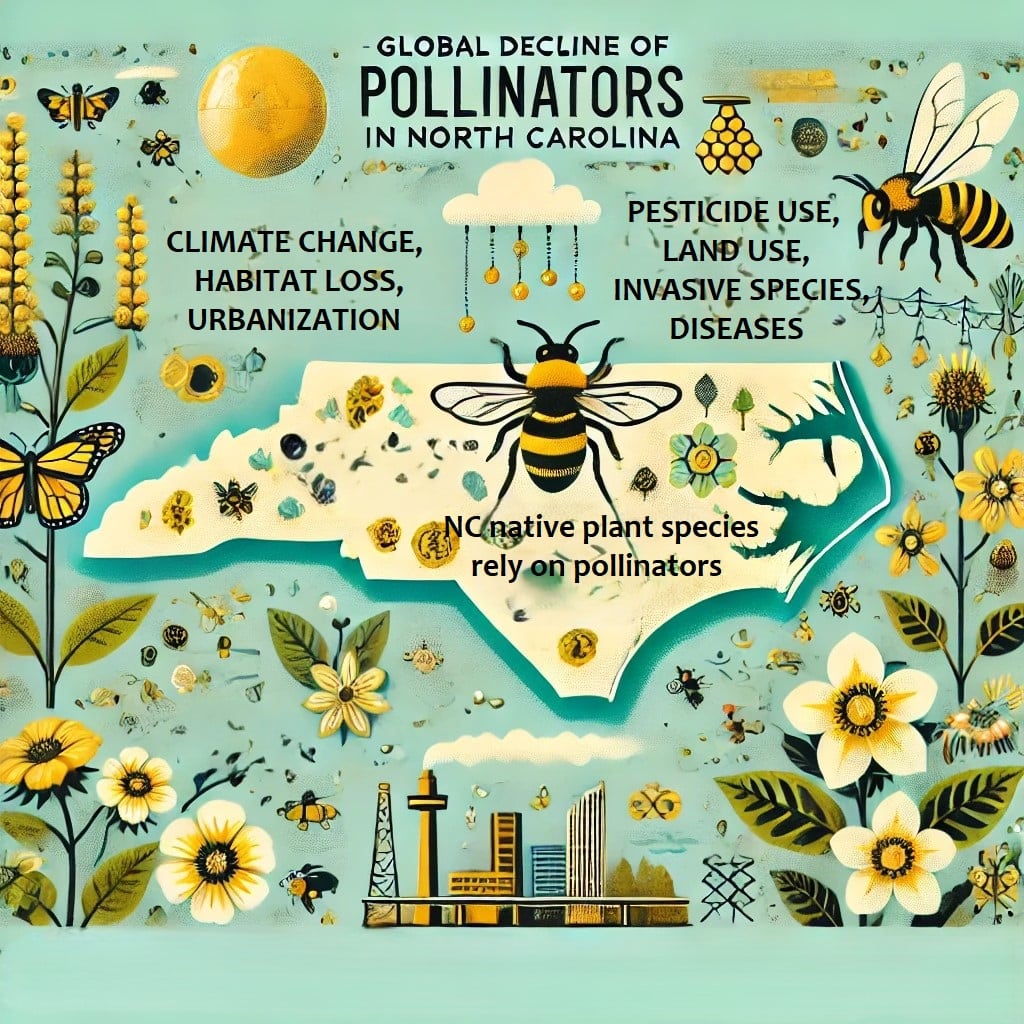
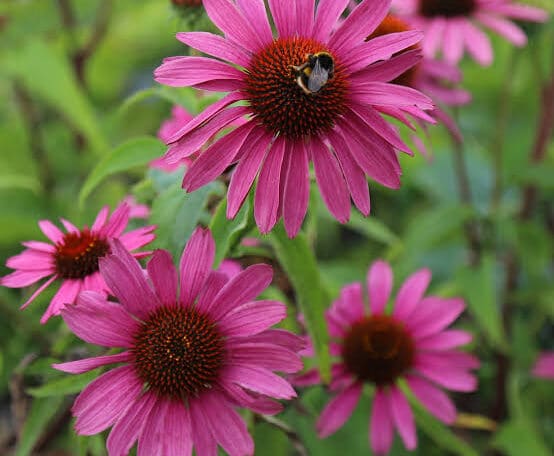
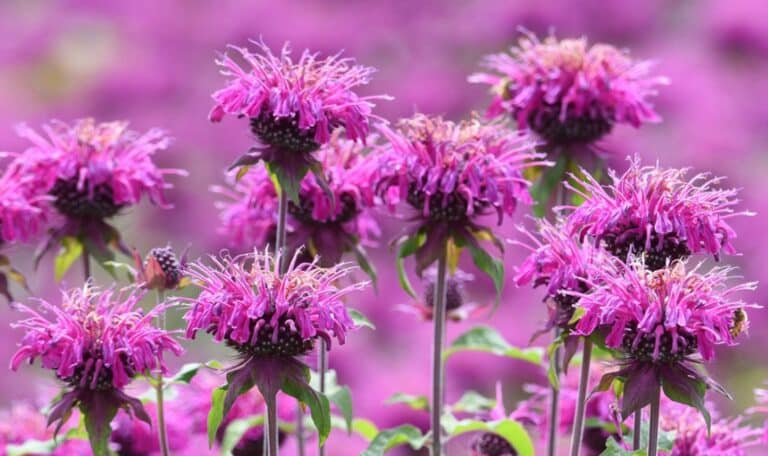
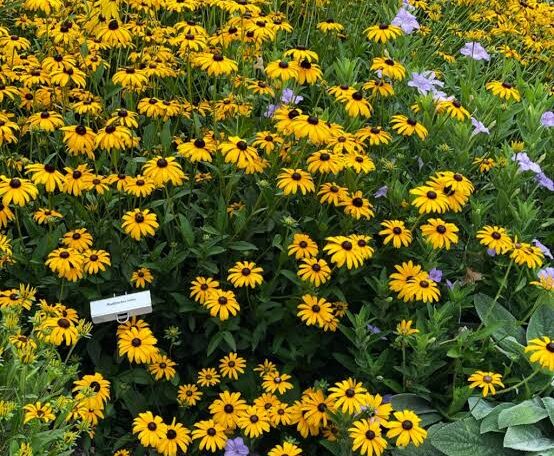
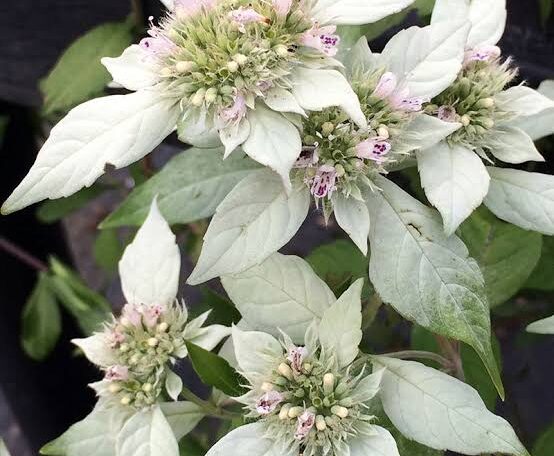
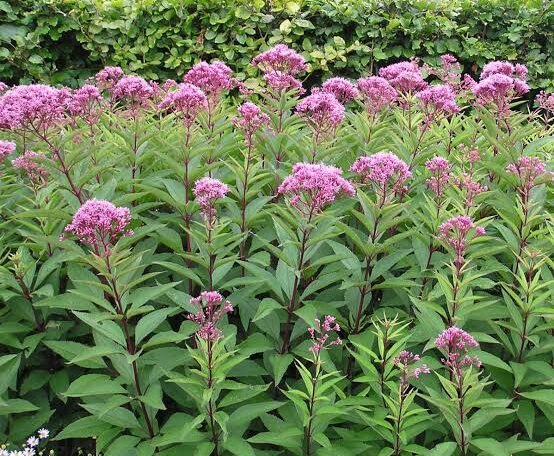
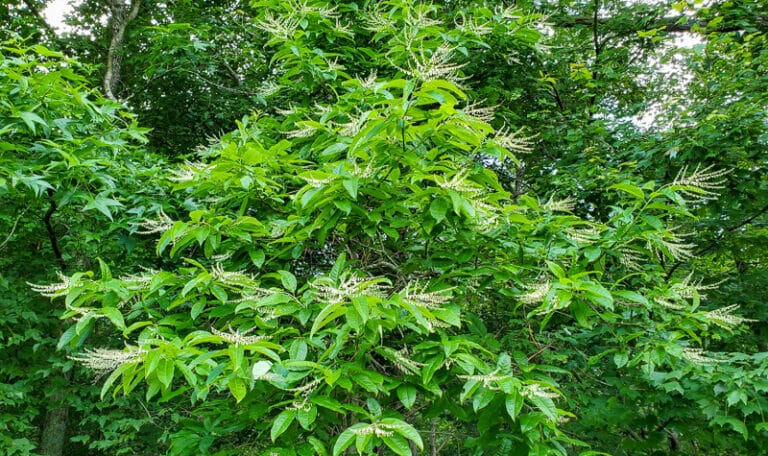
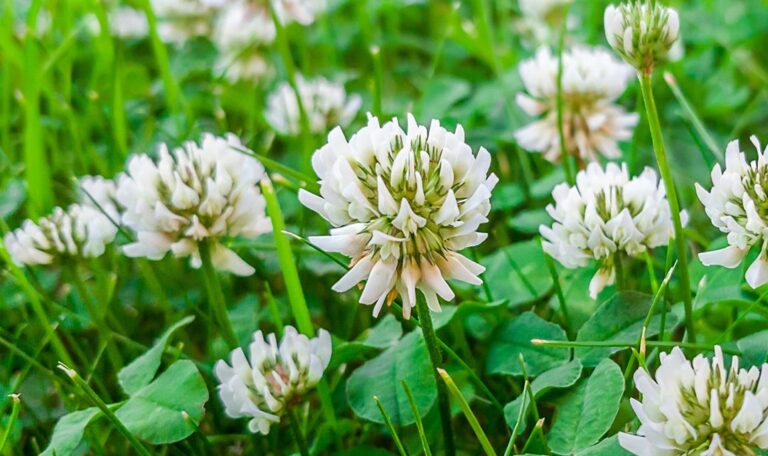
Key Plants for a Bee-Friendly Garden in Western North Carolina
When considering a native, pollinator-friendly landscape, here are a few native plants that attract pollinators like bees.
- Purple Coneflower (Echinacea purpurea)
- Bee Balm (Monarda didyma)
- Black-eyed Susan (Rudbeckia hirta)
- Mountain Mint (Pycnanthemum)
- Joe-Pye Weed (Eutrochium)
- Sourwood – fall flowering and honey
- Clover – early spring and honey
It is also important to choose a variety of plants that bloom at different times to provide nectar and pollen year-round.
How to Design Your Pollinator Garden
When considering how to design your pollinator garden, there are few important considerations, including sunlight, soil conditions, and proximity to water sources.
Layering your plant materials is important to create a habitat to attract a variety of pollinators. You can do this by incorporating ground cover, shrubs and trees that mature at varying heights to create this layered shaded habitat.
Pesticides can be harmful to pollinators. Consider using native plants, which often require less maintenance and pesticide use. When using pesticides in your pollinator garden, you should consider the following:
Avoid applying pesticides when pollinators are active, such as during the day when bees are active. Consider use of pesticides in the evening when bees have returned to their hives. You can also apply pesticides before or after blooming.
Choose the lowest toxicity pesticide available. There are many natural soaps and oils available. Always read the label and pay special attention to the “Environmental Hazards” section.
Install a natural pesticide buffer zone, such as grass or hedgerows to decrease pesticide drift. Avoid spraying areas where native pollinators live.
Utilizing the landscape design and installation services at B. H. Graning Landscapes, Inc. can best help you design the perfect pollinator garden for your space and keep it healthy and vibrant all season long.
The Benefits for Your Landscape
Choosing a variety of native plants, trees and shrubs, pollinator gardens add color, texture, and beauty to your landscape. Pollinator gardens will not only support pollinators, but they will also positively impact nearby fruit trees, vegetable gardens, and other crops by creating a more robust, biodiverse ecosystem. Once established, pollinator gardens are relatively low-maintenance, making them a practical addition to any yard.
Getting Started
Starting a pollinator garden is one of the best ways to enhance both your landscape and the local ecosystem. With the right plants and design, your garden can become a thriving habitat for bees and other essential pollinators, contributing to the health and beauty of Western North Carolina’s unique environment. At B. H. Graning Landscapes, Inc., we have the expertise to create pollinator gardens that not only look stunning but also support biodiversity. Our team understands the specific needs of this region and can design and maintain a garden that flourishes year-round.
Don’t wait to make a positive impact—contact us today for a consultation! Whether you’re starting small or planning a large-scale project, we’ll work with you to create a custom pollinator garden that benefits your property and the environment. Let’s work together to transform your landscape into a haven for pollinators.
